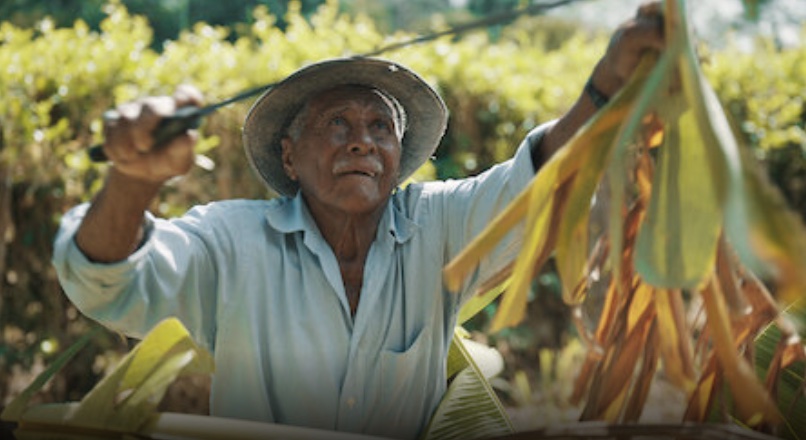When I turned 40 last summer, it felt like I had been climbing up a long and steady rise for the last decade of my life. As the pathway plateaued, I surveyed the scenery and thought to myself, ah, this is it. I’m over the hill.
The phrase “over the hill” implies that you’ve hit your peak, you’ve reached the summit, you’re officially old. Some people consider 40 to be over the hill, others 50, and still others split the difference, but in all cases, there’s this sense of resignation that your best years are now behind you. From here on out, life is about warding off diabetes and high cholesterol, working until retirement, and then surviving through those golden years with as few replacement hips and knees and shoulders as you can bear.
But there are people in this world who don’t live this way. Forty isn’t even halfway to the top—forty is the middle of the mountain. There’s so much more to see, to do, and to appreciate. For these people, there’s no sense in looking back in longing at the days gone by all of the time; pressing onward, they live for today, so they can live full lives far into the future.
Live to 100: Secrets of the Blue Zones
Image: LIVE to 100: Secrets of the Blue Zones (2023) © Netflix. Image Courtesy of IMDb.
In the Netflix series, Live to 100: Secrets of the Blue Zones, author Dan Buettner is in search of the truths to living the best life, hidden in plain sight in unique communities around the world. These communities, known as “blue zones,” have a significantly higher number of people who live to become centenarians, which suggests that they know something about how to live the good life.
What word of wisdom, dietary trick, or daily habit do they all practice that allows them to live long and vibrant lives?
That is Dan Buettner’s quest. He begins his travels in Okinawa, Japan, an island community whose 100-year-old residents were young adults during WWII.
Finding the Love: Faithifying Your Viewing
What Buettner quickly discovers from visiting these distinct places is there is no One Thing that guarantees you’ll live to be 100.
Surprise!
It isn’t access to a Super Food. It isn’t a specific exercise routine.
What it takes seems to be a complex blend of simple pleasures, just enough of the right kinds of food, daily work and frequent play, and doing it together, in community.
If you want to live a long and vibrant life, it appears as if you ought to start living a vibrant life this moment, not next year.
Jesus preached on this very subject in the story of the greedy farmer:
“The farm of a certain rich man produced a terrific crop. He talked to himself: ‘What can I do? My barn isn’t big enough for this harvest.’ Then he said, ‘Here’s what I’ll do: I’ll tear down my barns and build bigger ones. Then I’ll gather in all my grain and goods, and I’ll say to myself, Self, you’ve done well! You’ve got it made and can now retire. Take it easy and have the time of your life!’ Just then God showed up and said, ‘Fool! Tonight you die. And your barnful of goods—who gets it?’ That’s what happens when you fill your barn with Self and not with God” (Luke 12:16-21 MSG).
He goes on to encourage his disciples not to worry about such things as food and clothing. Don’t worry about a thing, Jesus says alongside Bob Marley, because every little thing is gonna be alright.
Stress, especially chronic stress, can put you at increased risk for anxiety, depression, digestive issues, headaches, muscle tension and pain, heart disease, heart attack, high blood pressure, stroke, sleep problems, weight gain, memory and concentration impairment, and other physical and mental problems, according to the American Psychological Association.
Jesus along with the wisdom teachers that preceded him agreed, so much so that rest is written into the Ten Commandments, and living in the present appears over and over again in the Old Testament.
It’s a careful balance (a work-life balance, one might argue), because another common denominator in these older communities is an active, physical lifestyle. These people are doing things. They are gardening. They are walking up steep hills. They stoop and squat and knead dough. They do water aerobics and play pickleball. They use their bodies, and their bodies in turn stay nimble, flexible, and strong.
Work and rest go hand-in-hand, from the very beginning of Creation into the Laws of Moses: “Work for six days and rest the seventh so your ox and donkey may rest and your servant and migrant workers may have time to get their needed rest” (Exodus 23:12 MSG)… “Work six days and rest the seventh. Stop working even during plowing and harvesting” (Exodus 34:21 MSG).
These self-care practices are done for more than the self, they are practiced in service of others. It turns out when we pour out our love for someone or something, it helps sustain our bodies and souls. Love is reciprocal.
Another benchmark for longevity appears to be gratitude, that happy practice of rejoicing over every big and small thing. Gratitude is the onramp to the highway of peace and joy. The more we are grateful, the wider and less congested is the freeway of satisfaction. The psalmist puts it this way:
“I eat my fill of prime rib and gravy; I smack my lips. It’s time to shout praises! If I’m sleepless at midnight, I spend the hours in grateful reflection. Because you’ve always stood up for me, I’m free to run and play. I hold on to you for dear life, and you hold me steady as a post” (Psalm 63:5-8 MSG).
People have been running after quick fixes and miracle pills for health for centuries. Even the Teacher in Ecclesiastes asked the same kinds of questions: If we’re only here for a breath, then what is the meaning of life?
“After looking at the way things are on this earth, here’s what I’ve decided is the best way to live: Take care of yourself, have a good time, and make the most of whatever job you have for as long as God gives you life. And that’s about it. That’s the human lot. Yes, we should make the most of what God gives, both the bounty and the capacity to enjoy it, accepting what’s given and delighting in the work. It’s God’s gift! God deals out joy in the present, the now. It’s useless to brood over how long we might live” (Ecclesiastes 5:18-20 MSG).
Now, thousands of years removed from the days of this Teacher, our oldest and healthiest citizens of planet Earth are still telling us the same stories. Their bodies and lives are living testimonies to a life well-lived. There’s so much to be collected from their wisdom, affirmed by the words of the Teachers who came before.
The trick is, now and as always, to go and live it.
“Oh, how sweet the light of day, And how wonderful to live in the sunshine! Even if you live a long time, don’t take a single day for granted. Take delight in each light-filled hour, Remembering that there will also be many dark days And that most of what comes your way is smoke” (Ecclesiastes 11:7-8 MSG).





 Copyright
2024
Root and Vine
Copyright
2024
Root and Vine